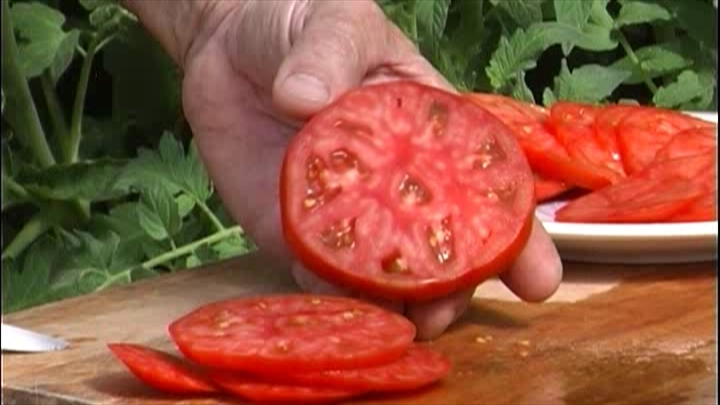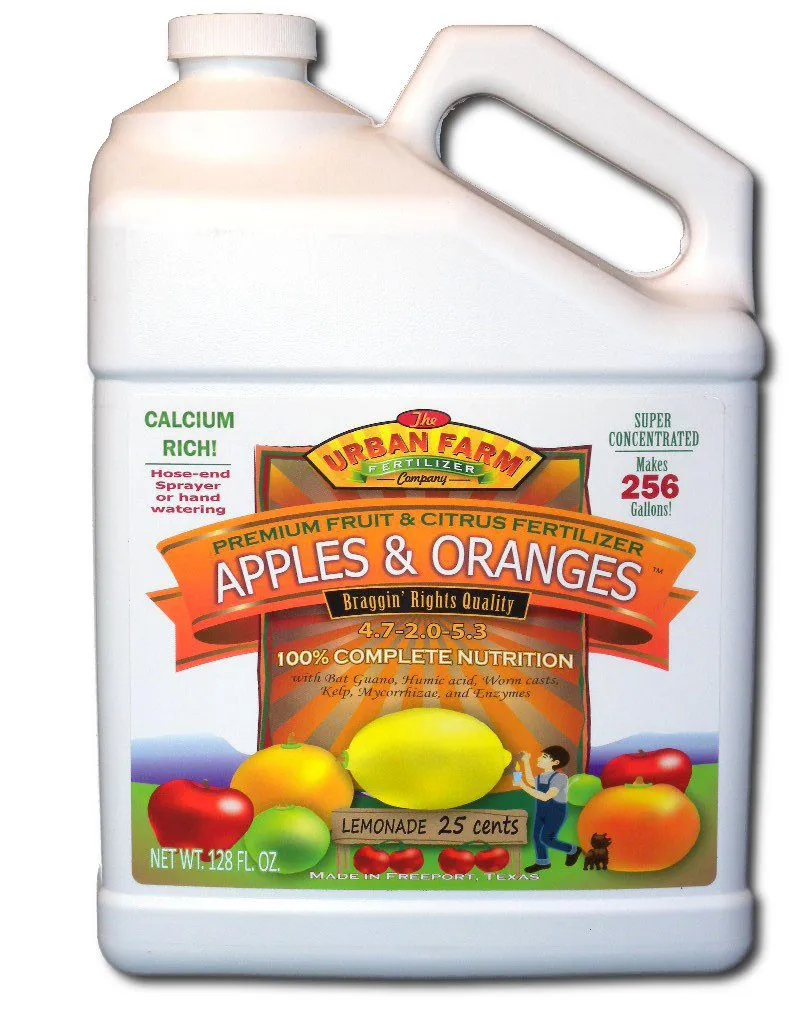It's easy to grow tomatoes with Urban Farm Fertilizers.
Do you remember how a “real” tomato tastes….juicy, meaty, dripping with flavor.....the heart of summer tomato sandwiches? Our customers grow them all the time.

The number one question we get is “How to grow tomatoes?”. People are really frustrated with supermarket tomatoes. And for good reason: they are bred to take a beating during shipping and then sit pretty on the shelf for an eternity. Taste is of little concern. You can’t blame the commercial producers…..they can’t have tomatoes going gushy on the way to market. But the end result is a truly “awful”, practically useless tomato that everyone complains about.
In truth, once you understand what tomatoes want, they are easy to produce in large numbers, large size, and superb gourmet quality. Tomatoes want:
-mostly direct natural sunlight.
-lots of food in the correct ratios and concentrations.(this is critically important)
-quite a bit of calcium in a form that plants can absorb.
-a lot of water, but not drowning in it.
-a highly-oxygenated rootzone. Compaction is a big no-no.
-and support off the ground helps to keep down disease.
Here is our advice for excellent soil-grown tomatoes.
Instead of tilling every organic amendment you can think of into your garden plot, just get a pickup load of the oldest cow or horse manure you can find. Till that into your soil at about 50%-50%. You won’t get much NPK food value, but you’ll get the aeration and bio-activity. You’ll have wonderfully conditioned soil ready for plants.
From that point on, just feed with our liquid nutrients, by hand or with a drip system. This is the easiest and quickest way to get great results.
The reason we recommend against plowing a ton of organic amendments into your soil is because it’s so easy to get “upside down”. By this we mean, once you start tossing in bone meal, blood meal, cottonseed meal, rock phosphate, ashes, chicken manure, and various composts, you can quickly……. not just unbalance your soil, but overdose it. We’ve personally confirmed this with soil analysis from customer’s gardens. What happens is…..without a scientific approach to what you are adding, you oftentimes end up adding too much of some elements and not enough of others. This can really be a problem with micronutrients. Next thing you know, you’re toxic on boron, and you’ll see chlorotic leaves and think you have a nutrient deficiency. Then you’ll add more “stuff” to try to correct it, only making it worse.
By using old cow manure, you are in no danger of overloading your soil with any one element. From that point on you are in control of delivering nutrition. You can do that by hand, by drip irrigation, or foliar-spraying. The reason old cow or horse manure is preferred over, say, poultry or pig, is that the latter two are very high in micro-nutrients (boron, copper, zinc, calcium, etc) and can overdose an area if used to excess. Whereas, cow and horse manures are digested grass consisting mostly of low-content organic material.
Basically, this is manual hydroponics: your cow manure/soil mix is your growing medium, and you are manually supplying perfect nutrition by using our hydroponic-grade fertilizers.
So, unless you are well-versed in soil analysis and chemistry, you are better off with neutral soil with high organic content (think ruffage) that will provide a hospitable environment for roots. Now all you have to do is feed that rootzone with a complete nutrient that is immediately available for absorption. That’s where Urban Farm Fertilizers come in.
And finally, you need good genes. Growing tomatoes begins with genes. If you grow a commercial, supermarket variety, that is what you will get. If you grow from good seed, known for flavor, that is what you will get….“if” the growing conditions are ideal.
The very qualities that make a great, juicy, sweet/tart tomato are incompatible with long-distance shipping and storage. That is why supermarket tomatoes are so bland……the breeders have taken the sugars out so the tomatoes will last forever in transit and on the shelves.
The solution? Grow the varieties the commercial producers can’t: Brandywine, Mortgage Lifter, Kellogg’s Breakfast, Cherokee Purple, Granny Cantrell, Big Rainbow, Pineapple, Manyel, Super Choice, Tappy’s, Big Zac, Coustralee, Patano Romanesco….all of the good ones, ie; heirlooms. Get back to “real” tomatoes.
Happy Gardening!













